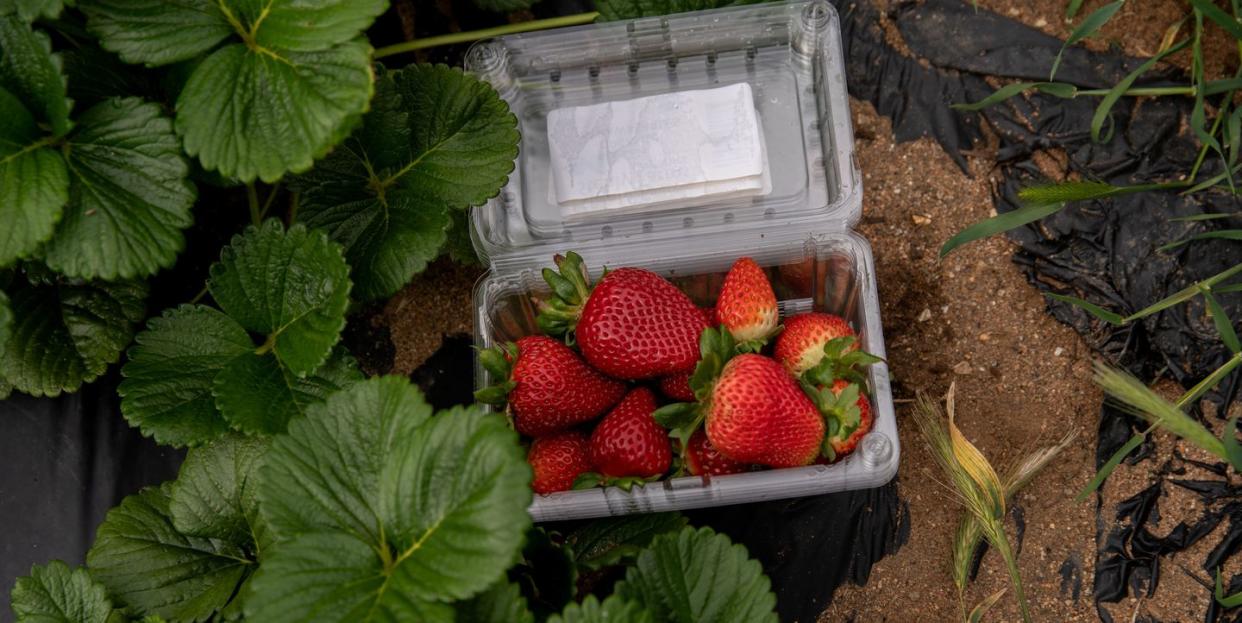Strawberries, Spinach, And Kale Topped The 'Dirty Dozen' List Again This Year

The Environmental Working Group released its annual "Dirty Dozen" list this week, which is a list of the fresh fruits and vegetables that have be found to be treated with the most pesticides. The 2020 list featured many foods that have appeared in years' past (looking at you, strawberries), as well as a few surprises.
Before we get into it, we want to note, as EWG did, that this list should not be confused with precautions surrounding COVID-19. All properly handled fresh produce, whether organic or not, is believed to be safe to eat (and your process for washing it remains the same as well!). Now onto the list.
Topping the list for at least the last three years are strawberries. In fact, more than 90 percent of samples of strawberries, apples, cherries, spinach, nectarines, and kale tested positive for residues of two or more pesticides, according to the EWG investigation. It should be no surprise then that all of these made the list as well.
Here is the 2020 Dirty Dozen:
Strawberries
Spinach
Kale
Nectarines
Apples
Grapes
Peaches
Cherries
Pears
Tomatoes
Celery
Potatoes
The surprise this year, though was an entry that didn't even make the list: raisins. Since it's technically not a fresh fruit, it was not eligible for the list, but the EWG still found some shocking things you should know.
According to the report "almost every sample of non-organic raisins tested by the USDA–99 percent–had residues of at least two pesticides, as did 91 percent of organic raisins." If it was a fresh fruit, it would top The Dirty Dozen.
On the flip side, the EWG also issues a "Clean 15" every year, which are fruits and veggies with lowest amount of pesticide residue. And you're probably going to be pretty excited about the first entry.
Here is the 2020 Clean 15:
Avocados
Sweet corn
Pineapple
Onions
Papaya
Sweet peas (frozen)
Eggplants
Asparagus
Cauliflower
Cantaloupes
Broccoli
Mushrooms
Cabbage
Honeydew melon
Kiwi
Yes, the beloved avocado topped the list with fewer than two percent of samples showing any detectable pesticides. The same can be said for sweet corn, just BTW!
To learn more and to read the full report, you can visit their site.
You Might Also Like

